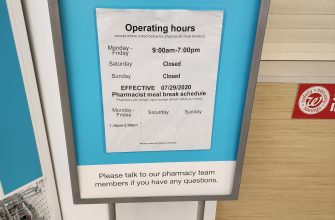Need a cost-effective solution for Viagra? Explore reputable online pharmacies offering generic versions. This often significantly reduces the price compared to brand-name options.
Many online pharmacies accept PayPal, offering a convenient and secure payment method. However, always verify the pharmacy’s legitimacy and credentials before making a purchase. Look for licensed pharmacies with clear contact information and customer reviews.
Remember to consult your doctor before starting any new medication, including generic Viagra. They can assess your health status and determine the appropriate dosage and potential side effects. Prioritizing your health is paramount.
Prioritize pharmacies with transparent pricing structures and clear return policies. This ensures a safe and reliable purchase experience. Comparing prices across different licensed online pharmacies can also help you find the best deal.
Generic Viagra offers the same active ingredient as the brand-name version, sildenafil citrate. This ensures comparable effectiveness at a fraction of the cost. This makes it a viable option for many men seeking treatment for erectile dysfunction.
Finding Safe and Affordable Viagra Alternatives
Consider lifestyle changes. Regular exercise, a balanced diet, and stress reduction techniques can improve blood flow and erectile function. These adjustments often yield positive results without medication.
Natural Remedies and Supplements
Explore natural options like L-arginine, a supplement that may improve nitric oxide production, aiding blood vessel dilation. Always consult your doctor before starting any new supplement regimen to avoid potential drug interactions or adverse effects. Remember, these are supportive measures, not replacements for medical advice.
Another avenue is exploring herbal remedies. However, rigorously research the specific herb and its potential benefits and side effects, ensuring reputable sources for information. Never self-medicate; always consult a healthcare professional.
Your doctor can assess your situation and recommend suitable alternatives, possibly including prescription medications beyond Viagra, like tadalafil or avanafil. They may also offer counseling to address psychological factors contributing to erectile dysfunction.
Understanding the Legitimate Options for Erectile Dysfunction Treatment
Consult your doctor. They can perform a thorough examination, identify underlying health issues contributing to ED, and recommend the most suitable treatment plan. This might involve lifestyle changes, medication, or other therapies.
Lifestyle modifications often play a significant role. Regular exercise, a balanced diet, weight management, and stress reduction techniques frequently improve ED symptoms. Quitting smoking and limiting alcohol consumption are also crucial.
Oral medications, like phosphodiesterase-5 (PDE5) inhibitors (such as sildenafil, tadalafil, vardenafil, avanafil), are commonly prescribed. These drugs increase blood flow to the penis, facilitating erections. Your doctor will discuss potential side effects and suitability based on your medical history.
Other medication options include alprostadil, which can be administered as a urethral suppository or injection directly into the penis. This increases blood flow, inducing an erection. Your physician will explain the procedure and potential side effects.
Vacuum erection devices (VEDs) are non-invasive devices that create a vacuum around the penis, drawing blood in and causing an erection. These are often used alongside other treatments.
Penile implants are a surgical option for men who haven’t found success with other methods. These surgically implanted devices provide a permanent solution for achieving erections.
Counseling or therapy can address psychological factors that contribute to ED. A therapist can help manage anxiety, depression, and relationship problems that may negatively impact sexual function.
Remember, several effective treatments exist. Finding the right approach requires open communication with your healthcare provider to determine the best course of action for your individual needs.







